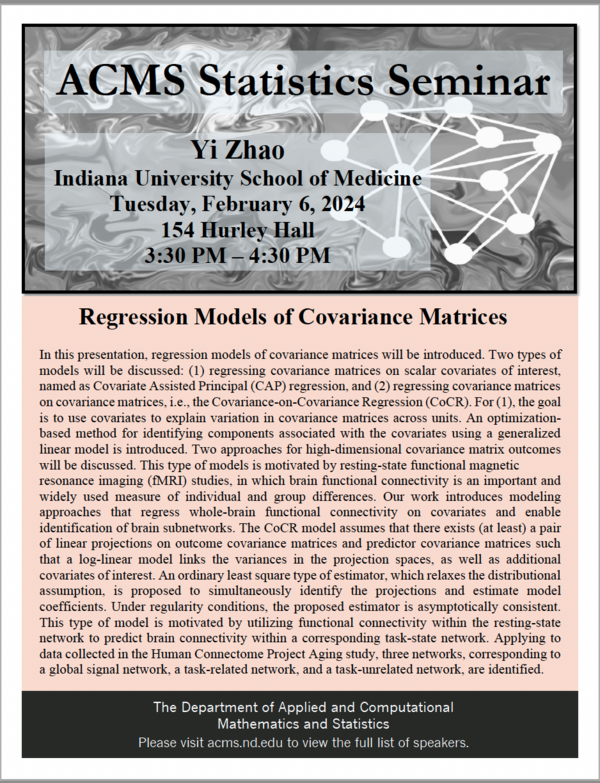Yi Zhao
Indiana University School of Medicine
Tuesday, February 6, 2024
154 Hurley Hall
3:30 pm - 4:30 pm
Title: Regression Models of Covariance Matrices
Abstract:
In this presentation, regression models of covariance matrices will be introduced. Two types of models will be discussed: (1) regressing covariance matrices on scalar covariates of interest, named as Covariate Assisted Principal (CAP) regression, and (2) regressing covariance matrices on covariance matrices, i.e., the Covariance-on-Covariance Regression (CoCR). For (1), the goal is to use covariates to explain variation in covariance matrices across units. An optimization- based method for identifying components associated with the covariates using a generalized linear model is introduced. Two approaches for high-dimensional covariance matrix outcomes will be discussed. This type of models is motivated by resting-state functional magnetic
resonance imaging (fMRI) studies, in which brain functional connectivity is an important and widely used measure of individual and group differences. Our work introduces modeling approaches that regress whole-brain functional connectivity on covariates and enable identification of brain subnetworks. The CoCR model assumes that there exists (at least) a pair of linear projections on outcome covariance matrices and predictor covariance matrices such that a log-linear model links the variances in the projection spaces, as well as additional covariates of interest. An ordinary least square type of estimator, which relaxes the distributional assumption, is proposed to simultaneously identify the projections and estimate model coefficients. Under regularity conditions, the proposed estimator is asymptotically consistent. This type of model is motivated by utilizing functional connectivity within the resting-state network to predict brain connectivity within a corresponding task-state network. Applying to data collected in the Human Connectome Project Aging study, three networks, corresponding to a global signal network, a task-related network, and a task-unrelated network, are identified.
